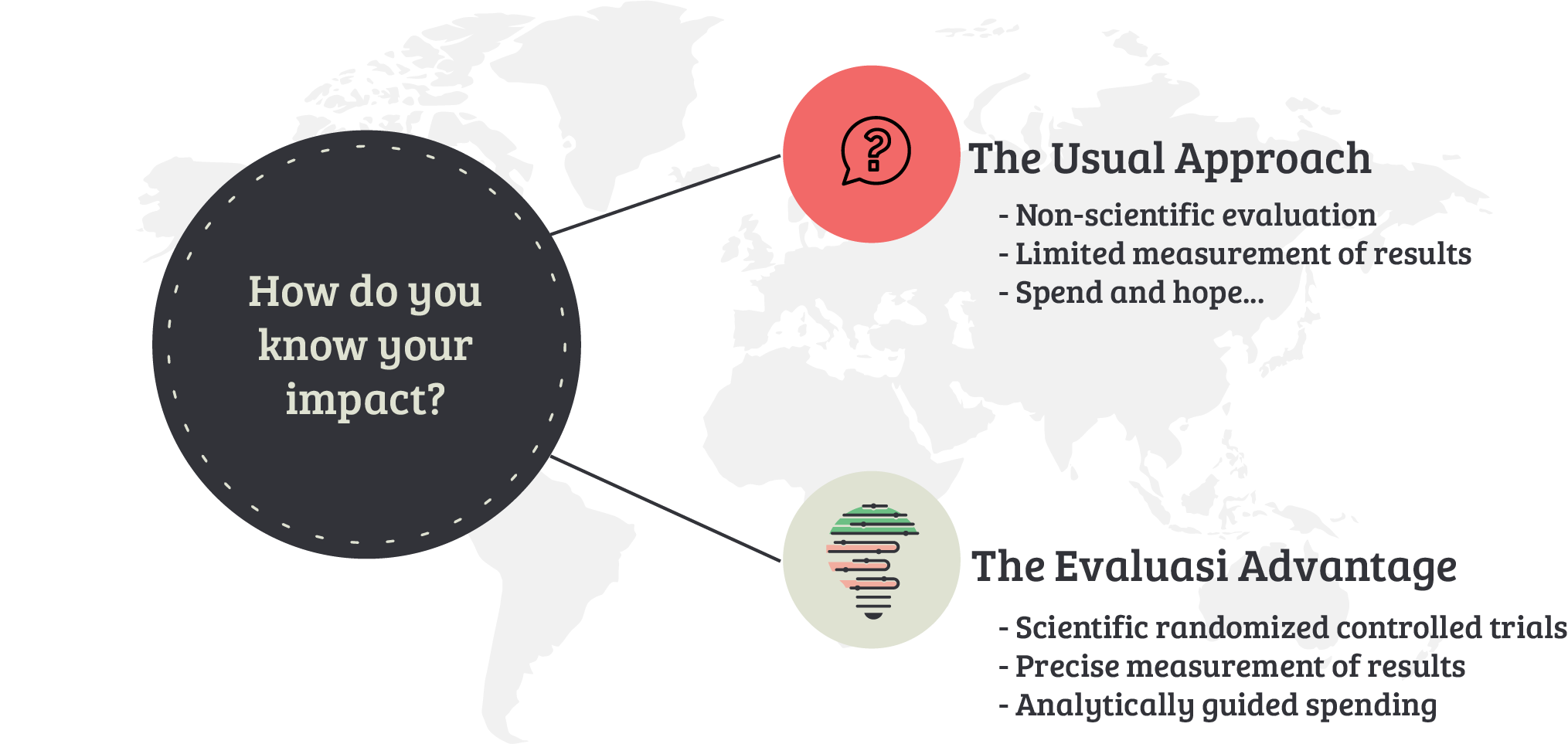Why it matters
Stakeholders want to know impact.
Yet, not all types of data have equal value. Data that is collected by anecdotal observation, and not collected scientifically, can lead to faulty conclusions and mislead an organization away from its social impact mission.
Organizations need to know which impact efforts work best at lowest cost. Conducting randomized control trials is the leading approach to scientifically identify precise measures of impact, which can then be used by organizations to make informed cost-benefit judgments.
Randomized Controlled Trials
Similar to A/B testing for websites or clinical studies in medicine, randomized controlled trials (RCTs) provide the most reliable and scientific evidence of impact.
Scientifically measuring the impact of a social responsibility project involves…
Randomly assigning recipients to a treatment group;
And comparing them to a control group.
This provides a better comparison of outcomes between treatment and control.
Precise Measurement
Data can be misleading - you need measures that faithfully reflect the outcomes you care about.
Evaluasi’s PhD social scientists know how measurement can go wrong and work closely with companies to ensure that collected data accurately represents what matters most in spending company resources.
Methods include:
Unbiased survey techniques
Careful calibration of customer actions
Measuring observed behavior
Leveraging big data sensibly
Analytically Guided Spending
In any relevant business decision, a careful informed analysis of the benefits and costs is needed to understand the desirability of pursuing a given project for social impact
Scientifically measured estimates for the benefits and costs of pursuing alternative projects then provide guidance on which projects can deliver the greatest social impact.
Our novel cost-benefit analysis incorporates impact flows that are informed scientifically by employing randomized controlled trials in the field to understand impact.





